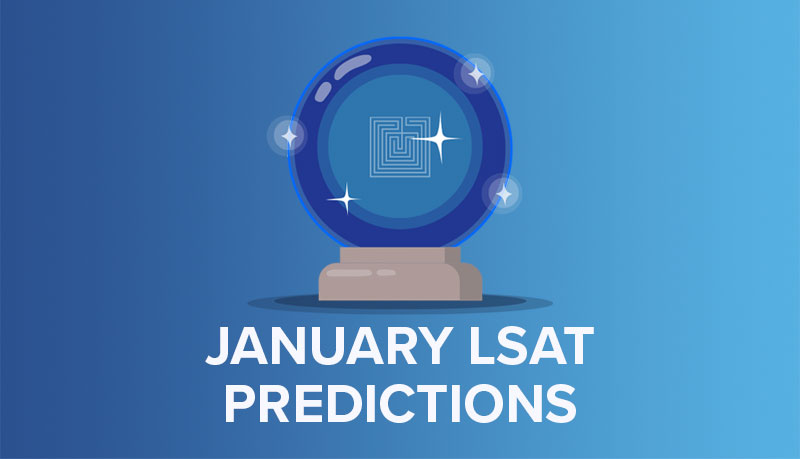Someone once said there’s no better way to kick off a new year than by getting the LSAT out of the way. (It’s us. We’re someone.) Since it’s often the last LSAT that meets law school application deadlines, many students opt to take the January LSAT.
The downside is you had this behemoth of an exam looming over you throughout the holiday season, but here you are, days away from your test date. The test anxiety might be building, but worry not.
We have you covered with some valuable tips and insights to help you conquer the January 2024 LSAT with confidence.
What Will Be on the January LSAT?
Logical Reasoning
The LSAT has been relatively consistent with its Logical Reasoning Sections on past tests, both on the types of questions you can encounter and the difficulty curve.
Expect a ton of flaw, strengthen, weaken, sufficient, and necessary questions on test day. The majority of the questions in a Logical Reasoning Section test your ability to find and work with flaws in the arguments.
If a question asks you to identify or operate on flaws, your first step should always be to figure out what the argument is trying to do before ultimately figuring out what the argument failed to do properly. The right answer will always directly relate to the flaws in the arguments.
Difficulty-wise, the section begins relatively easy with the first 10 questions tending to be easy to medium difficulty levels, with a slight bump in difficulty around questions 11-15. Question 16 is where things start getting tough, so be on the lookout for traps in these questions and slight equivocations that make otherwise tempting answers incorrect.
Reading Comprehension
The difficulty curve in the Reading Comprehension Section is a bit less steep, with much of the difficulty coming down to what you subjectively gravitate towards. You can usually bank on an easier passage first, though, so you may want to tackle that one first regardless.
With this in mind, if you know you tend to have a harder time with science passages, for example, you may want to think of leaving that one to the end.
Further Reading
Getting Through Brutally Difficult Reading Comp Passages About the Arts
Getting Through Brutally Difficult Reading Comp PassagesAbout the Law
In general, the more viewpoints a passage expresses, the more the questions will be about the big-picture structure and the viewpoints. Prepare to compare and contrast multiple viewpoints.
For passages with fewer viewpoints, there will likely be more questions on the details and the internal structural elements contained within individual paragraphs.
If you sense a thesis passage, you may want to jot down more thorough tags to reflect the level of detail they want from you or annotate more heavily.
Logic Games
Logic Games are going away this year, so the odds are that the LSAT will go by the book and not throw something completely out of left field at you.
I’d expect a tiered ordering game, an unstable grouping game, a stable grouping game, and a combo game on test day. If a game doesn’t fit into one of the above, try to ground yourself with ordering or grouping rules first and then build out the setup from this initial starting point.
Further Reading
In the rare chance you get a neither game, be as literal and direct with the rules as possible when building out your setup.
Final Thoughts
Sign up to get expert tips and exclusive invites to free LSAT classes and law school admissions workshops!
Timing on the LSAT is largely about making sure to not spend too long on any one question; maintain forward momentum as you go through the questions. Leaving out the toughest questions until the end can help limit timing stress on the rest of the test and mental fatigue as you go through the sections.
Take your best guess and move on if you’re stuck and you don’t have a different approach to the question. Come back to the question if you have time.
If you know you have particularly time-consuming question types (such as parallel or parallel flaws in Logical Reasoning or substitution questions in Logic Games), you may want to leave these until the end.
Unless you’re aiming for a near-perfect score, you can thrive on the LSAT without hitting every question, and each question is only worth one point so it never really makes sense to spend a disproportionately long amount of time on any single question.
If all else fails, trust your gut and go with your instincts—even if you don’t know why a given answer is correct, your subconscious might, and the end result would be the same.
Good luck!



